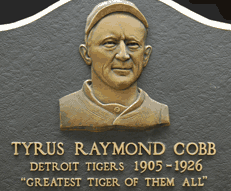As the NBA heads into an indefinite lockout, I now have plenty of time to continue churning out these player reviews for the 2010-2011 season. This time, it’s Mike Dunleavy Jr.
Remember in the 2007-2008 season when Mike Jr averaged 19.1 points per game and everyone was gushing about what an intelligent and efficient offensive player he was? Then came the injuries and the surgeries, and Mike was no longer the player he once was — and most probably never will be. In the 2009-2010 season, Dunleavy returned to average 9.9 points in 67 games, the lowest since his rookie season. But that was understandable because he was returning from a long lay off and was struggling to regain his legs and his form.
This season, however, marked the return of the ‘real’ Dunleavy, or so we were informed. It wasn’t fair or realistic to expect Dunleavy to return to being a 19 point scorer — after all, he is 30 years old and the Pacers are stacked with younger talent at his position — but was 14-15 effective points per game out of the question? Considering how much Dunleavy earns per season ($10.5m in 2010-2011), that it was a contract year, and how bad he was defensively, surely that wasn’t too much to ask?
Well unforrtunately, it was. This season, Mike played in 61 games (starting in 44), averaged 27.6 minutes and 11.2 points, 4.6 rebounds and 1.7 assists. On paper, even though Dunleavy wasn’t spectacular, he was certainly pretty good. Compared to Brandon Rush, Dahntay Jones and Paul George, Dunleavy appeared to be the most efficient offensive player. He shot over 46% from the field and 40% from 3-point land, plus 80% from the line. For a 30 year old role player with surgically repaired knees, that’s rather impressive.
The thing with Dunleavy is that his defense is woeful. Even though he is a lanky 6’9″, he lacks the quickness, lateral movement and strength to defend anyone. As a result, teams often exploited Dunleavy on D, especially in isolations. To be fair, he did work hard and was an adequate team defender, but he simply didn’t have the physical tools necessary to lock down his man.
So Dunleavy is what he is. A streaky shooter with a high basketball IQ — he often made good quality cuts to the basket for pretty finishes or made the right pass to a cutting teammate — but when his shot was off he was a huge liability. It was the reason why (along with Paul George’s stellar D) that Dunleavy only played 14.4 minutes per game in the 5 playoff games against the Bulls. The excellent Bulls defense neutralized Dunleavy’s shooting and consequently he only averaged 5 points per game on 35% shooting.
Dunleavy’s best game came in that 144-113 drubbing of Denver that everyone will be talking about for years. In that near-perfect third quarter, Dunleavy was the star, scoring 24 of his team high 31 points, including making all five 3-pointer attempts. That was Dunleavy at his absolute best. He had a few of those types of games and a few 2-11, 3-10 shooting nights here and there — he was like a box of chocolates — you just never knew what you were going to get.
Now Dunleavy and his mammoth contract is finally off the books, and his future is unclear (even without the lockout). The Pacers have indicated that they would like to bring him back with a much smaller salary that better matches his output, and I think that’s not a bad idea. I certainly don’t have a problem with bringing him off the bench for a few minutes every game and see whether he gets it going. When wide open, Dunleavy can still be an asset. If he’s struggling, take him out and put one of the younger guys in. At this stage of his career, it’s up to the coach to utilize his strengths and hide his weaknesses.
As for how Dunleavy performed this season? I guess there’s a few ways you could look at it. On paper, he was the Pacers’ fourth leading scorer (behind Granger, Collison and Hibbert), and he did shoot at a relatively efficient rate. On the other hand, he was a defensive liability and he earned more money than anyone on the team other than Granger, which he clearly didn’t deserve. I’d like to think that overall, Dunleavy was an asset for the Pacers, and all things considered in perspective, I suppose you could say he had a fairly good season.
Grade: B-
Add The Sports Daily to your Google News Feed!
